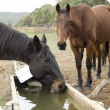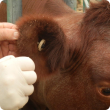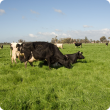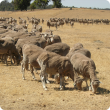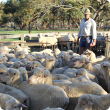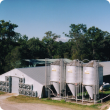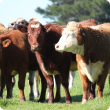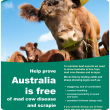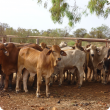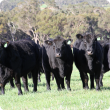Services
Search in Services
Filter services by topic
- Biosecurity & quarantine (95) Apply Biosecurity & quarantine filter
- Biosecurity (95) Apply Biosecurity filter
- (-) Remove Livestock biosecurity filter Livestock biosecurity
- Pests, weeds & diseases (89) Apply Pests, weeds & diseases filter
- Diseases (86) Apply Diseases filter
- Livestock health & diseases (84) Apply Livestock health & diseases filter
- Livestock disease surveillance (80) Apply Livestock disease surveillance filter
- Livestock & animals (79) Apply Livestock & animals filter
- Livestock species (59) Apply Livestock species filter
- Livestock management (30) Apply Livestock management filter
- Emergency animal disease preparedness (26) Apply Emergency animal disease preparedness filter
- Sheep (26) Apply Sheep filter
- Beef cattle (19) Apply Beef cattle filter
- Dairy cattle (15) Apply Dairy cattle filter
- Management & reproduction (12) Apply Management & reproduction filter
- Poultry & birds (11) Apply Poultry & birds filter
- Livestock movement & identification (9) Apply Livestock movement & identification filter
- Goats (8) Apply Goats filter
- Chemicals (8) Apply Chemicals filter
- Control methods (8) Apply Control methods filter
- Pigs (7) Apply Pigs filter
- Horses (7) Apply Horses filter
- Feeding & nutrition (6) Apply Feeding & nutrition filter
- Residues in livestock (5) Apply Residues in livestock filter
- Veterinary chemicals (5) Apply Veterinary chemicals filter
- Preventing residues (5) Apply Preventing residues filter
- Wildlife biosecurity (4) Apply Wildlife biosecurity filter
- Emergency response (4) Apply Emergency response filter
- Quarantine (3) Apply Quarantine filter
- Importing animals (2) Apply Importing animals filter
- Stockfeed (2) Apply Stockfeed filter
- Importing to Western Australia (2) Apply Importing to Western Australia filter
- Food, export & investment (2) Apply Food, export & investment filter
- Climate, land & water (2) Apply Climate, land & water filter
- Water (1) Apply Water filter
- Small landholders in Western Australia (1) Apply Small landholders in Western Australia filter
- Water management (1) Apply Water management filter
- Weeds (1) Apply Weeds filter
- Plant biosecurity (1) Apply Plant biosecurity filter
- Livestock research & development (1) Apply Livestock research & development filter
- Export services (1) Apply Export services filter
- Investment attraction (1) Apply Investment attraction filter
- Land use (1) Apply Land use filter
- Pests (1) Apply Pests filter

